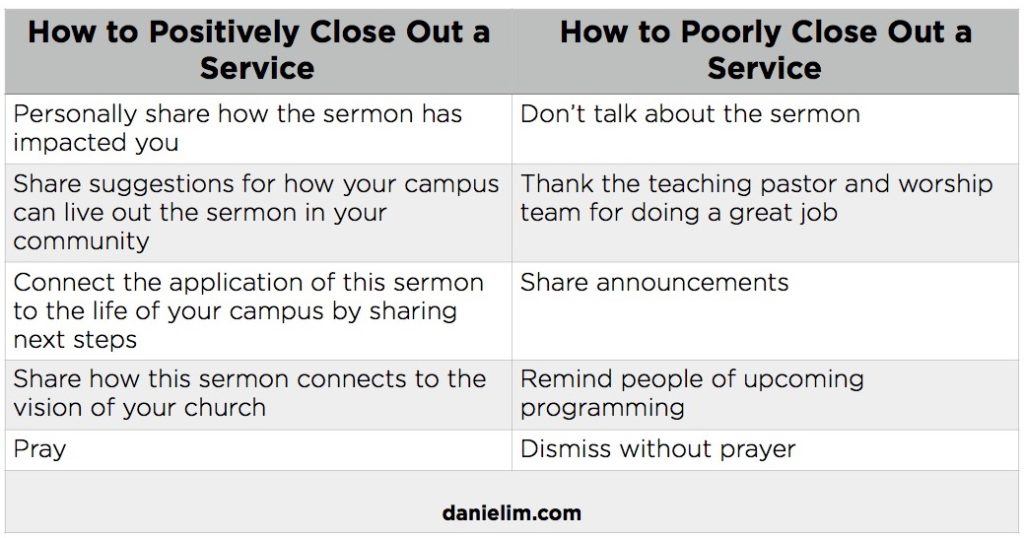Campus pastors who never lead up will always hit a ceiling in their development.
Think about the team that you lead. When in a meeting or working on a project, how do you feel when everyone always agrees with you and never offers another suggestion? Or, how about when someone disagrees with you or offers a better idea? How do you feel then?
Refusing to lead up can either be seen as a lack of competence or a lack of care.
When you always seem to agree with those who are leading you, this is often viewed as a lack of knowledge or skill. After all, there’s no way that your boss can be more competent than you in every area, especially if you’re hired to be a specialist in a particular area. For example, how would you feel if you always knew more about children’s ministry than your children’s director? It’s one thing if you were more of an expert in their area when they started on your staff (this is referring to S1 in Situational Leadership, as we addressed in the previous post), but you wouldn’t want them to stay there.
In addition, repeated silence or unconditional agreement is typically interpreted as a lack of initiative or a lack of care. After all, if you truly cared about the project or the task at hand, wouldn’t you have been thinking about it, researching it, and trying to bring your best ideas to the table?
Now don’t misinterpret me. I’m not saying that you always need to have something to say, nor that you should play the devil’s advocate. There’s definitely a balance needed here, but what’s not an option is repeated silence.
When you do speak out and try to lead up, this can either be seen as a challenge to authority, or allegiance to the organization.
Let me explain. If those leading you are authoritarian and have big egos, they typically see ideas other than theirs as sub-par, and as a result, a challenge to their authority. When team members speak up, leaders like those are typically thinking, “How dare you say something other than yes? Do you really think you’re better at this than I am?” Or, if the presented idea is actually better than theirs, they will probably find a way to minimize it, and then secretly implement it, while taking all the credit. If that’s how the leadership is at your church, then consider asking the Lord for an opportunity to leave. This is not a healthy environment to be in.
What if your idea is taken into account? What if your idea is actually better than the leader’s? And then, what if your idea is actually the one that gets implemented? In a healthy organization or church, this wouldn’t be seen as a challenge to authority; instead, it would be seen as allegiance to the organization. The fact that you brought a good idea demonstrates that you are all-in, and want everyone on the team to succeed.
When you present a better idea, alternative solution, or even initiate a brand new idea, you need to think about the way you present it, as much as the content of it.
After all, the fate of your idea, and the fate of your future in the church, ultimately depends on your level of emotional intelligence, how you present the idea, and the amount of relational capital and trust that you have built with others. This reminds me of that often repeated phrase in relationships, “It’s not what you said, it’s how you said it!”
So instead of saying, “No, I don’t like that. I have a better idea. Listen up!” Next time you have a better solution than the one that the lead pastor presents, try saying something like this. “I love __________ (find an aspect of the leader’s idea that you appreciate). What do you think if we did this as well? __________ (present your idea).” Or, if your idea is completely different than what has already been presented, then try this, “I have an idea that’s pretty different than what’s been suggested, but I think it might work, or at least aspects of it. Do you guys want to hear it?”
When you lead up, you are demonstrating your leadership capacity and competency, while also declaring your your love and allegiance to the vision and mission that your church is trying to accomplish.
Here are four areas that campus pastors NEED to lead up in:
1. Preaching
Effective multisite churches coordinate preaching across their campuses. If you consider yourself a multisite church, but aren’t doing this, then you’re missing out. More than a common budget and a vision statement, it’s coordinated preaching that keeps multisite churches together and in unison. Whether you do this via video, or with a live teaching team, it’s important that every campus is hearing the same core set of points on a weekly basis. There is definitely room for Campus Sundays where the campus pastors are preaching unique messages to their campuses, but this is more of an exception than the norm.
[Read more…] about Campus Pastor Skill #4: How to Lead Up




